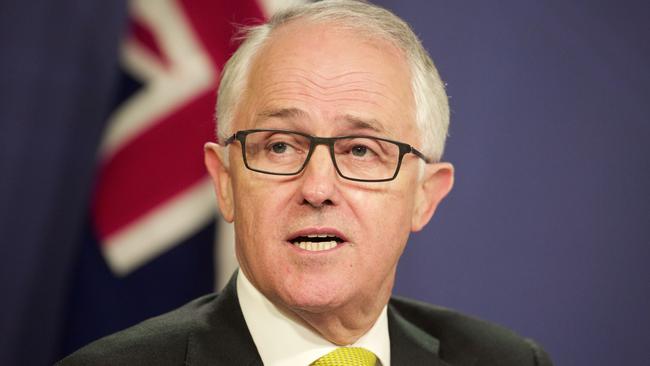Why business people should cut politicians a bit of slack
Business needs a greater understanding of what politicians actually do.

There is a very good chance that 2017 will be remembered as the year when relations between Canberra and what is sometimes known as the big end of town shifted from vaguely polite to poisonous.
That’s how we ended up with the Hayne royal commission into the banking, wealth and insurance sector, which formally kicks off in a few months’ time, the public war of words between Malcolm Turnbull and AGL over energy prices, and the relentless criticism by senior ministers of executive remuneration.
One of the federal government’s most senior ministers, Peter Dutton, confirmed the state of play shortly before Christmas when he said he and his colleagues wished more business leaders publicly advocated for economic changes that benefited the broader economy, rather than make pronouncements on issues such as same-sex marriage.
“I think there is a bigger disconnect between business and politics than there has been for a long period of time,” Dutton said.
Dutton is right, of course. Talk to most senior executives and they will tell you that most of our politicians don’t really understand the pressures faced by business today, fighting to make a quid in an increasingly competitive and uncertain marketplace.
But there is another, equally valid, side to the argument: some business leaders don’t quite understand the pressures politicians face.
So here is a handy but by no means exhaustive guide that might just help get the ship back on an even keel in 2018.
A week is a long time in politics
Politicians are ruled by the media because, let’s face it, the media can make or break a political career.
Social media, with its insatiable appetite for shock and horror, has turned the old 24-hour news cycle into a 24-minute firestorm. Which means politicians who fail to respond to front page stories on electricity prices, for example, are dicing with death.
The media demand immediate and decisive action. Waiting for the dust to settle down — as some CEOs do in times of crisis — is not an option for a politician with ambition.
Politicians hate bad news
Closing 100 loss-making bank branches in rural Victoria may make sense financially, but the problem for your local MP is that her constituents won’t be pleased.
They will be angry, hold public meetings, create a jazzy Facebook page, get a Twitter account, attract media attention, and before you know it, they are running as an independent candidate. Now, that’s bad news.
Not surprisingly, MPs have no choice but to jump on the bandwagon. It’s why most states now have an effective ban on coal-seam gas exploration.
Regulators have a purpose
Many chief executives see regulators as publicity-hungry pains in the neck. Politicians see regulators as an excellent way of solving problems no politician can ever solve.
That is why we have so many of them — when it gets a bit sticky in the political kitchen, refer the issue to a regulator. It buys time.
Politicians are underpaid — and they know it
Despite the stories you read about politicians with their snout in the trough, the reality is they are underpaid.
The prime minister earns about $530,000 a year, which is a tenth of what most senior bankers make.
This is not a case for politicians to get more money (although the better ones certainly deserve more), but it means they won’t take kindly to CEOs who earn millions a year lecturing them on why they should support cost-cutting plans to ship Australian jobs to call centres in Bangalore.
Few politicians have experience in big business
There are plenty of lawyers, union officials (on the Labor side), public servants, and for a while there even an undertaker, but few politicians have business experience at the pointy end. Ironically, the exception is Malcolm Turnbull.
We live in the age of career politicians: young men and women for whom private sector positions appear to be an unnecessary diversion. And despite the constant scrutiny and the relatively low pay, getting preselected in a safe seat is getting progressively more difficult.
Sudden death
Finally, business sometimes forgets that politics is a sudden-death game, as Sam Dastyari confirmed earlier this month.
In business, you can resign under controversial circumstances and still end up with a very handsome goodbye cheque. In politics, if you are forced to resign from the ministry, you end up back on the backbench, where the basic salary package is about $200,000 a year.
Or if you are really unlucky, you get voted out of the big house altogether.
So, yes, senior politicians certainly need to spend more time listening to the business community about the challenges they face, from the cost of energy to the unstoppable march of technology.
But it may also be time for business leaders to cut politicians some slack.
Luis M. Garcia is senior director at communications firm Cannings. He is a former ministerial adviser.



To join the conversation, please log in. Don't have an account? Register
Join the conversation, you are commenting as Logout